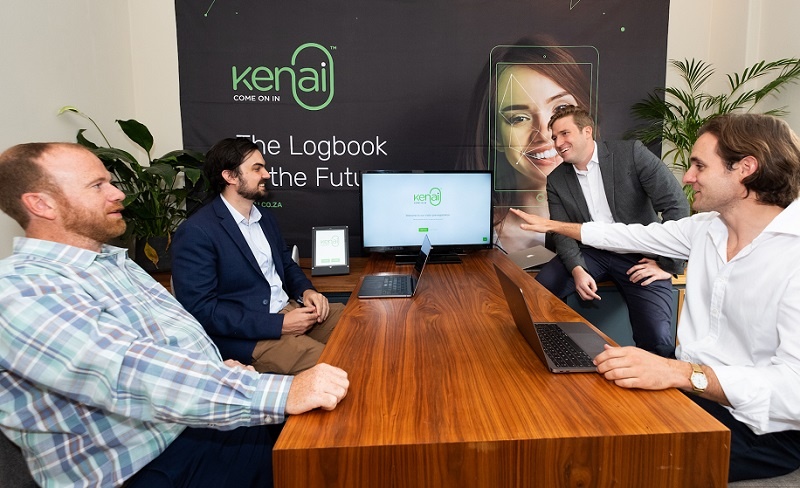South African startup Kenai is using facial recognition technology to transform the way companies manage people entering their buildings, and plans to roll out a whole suite of office management tools.
The Johannesburg-based Kenai, which launched its first product in beta with Accenture in March of last year, uses facial recognition as an integral part of the visitor sign-in flow, replacing the visitor book with a slick iPad application.
Each returning visitor is recognised to speed up the sign-in process, with robust information capture resulting in improved building security. Visitors can automatically print their badges, while the host is notified of their arrival. Visitors can also register in advance of their visit, and get recognised on arrival by sending a selfie.
“We noticed that the management of different people in corporate buildings was fractured across a number of different systems – an expensive outcome. We had all experienced the pain of the visitor sign-in process multiple times and decided it was a logical place to start in taking on the larger opportunity,” James Lightbody, Kenai’s chief executive officer (CEO), told Disrupt Africa.
“By leveraging the latest in facial recognition, we are creating beautiful and intuitive products to achieve a level of oversight not possible with older technology.”
Since launching with Accenture, Kenai has signed up sizeable clients in the likes of Nedbank CIB, RCS Group and Safair, and has already processed over 15,000 visitors. The visitors solution is only its first product, and it is already rolling out its next one, a contract worker clock-in system.
“We worked with seven clients in our first year of operation,” said Lightbody. “Given we were developing a lot of valuable features at the same time, we were extremely satisfied by this outcome. As we create more and more features, the value-add to corporates grows, which we hope will drive distribution.”
Kenai has been bootstrapped thus far, but Lightbody expects that to change this year.
“The most expensive part of a business like ours is the staff contingent. Given our founding team covered all the initial skills required to build Kenai Visitors, we didn’t raise capital to build it,” he said.
“We are currently rounding off the visitor solution and will be looking to raise capital towards the second half of the year to accelerate the development of future products and the distribution thereof.”
Any funding will not, however, be used for immediate expansion, with Kenai planning to focus only on South Africa for the short-term. Yet Lightbody does foresee the startup moving into other markets.
“Having oversight of everyone in an office space is a requirement of almost every corporate around the world. As such, we will target other markets once we gain sufficient traction in the South African market – we don’t want to rush this process,” he said.
Operating a software as a service (SaaS) model, Kenai generates revenue through a monthly subscription fee.
“The target market for Kenai Visitors includes a wide range of buildings, be it single tenant offices, multi-tenant office blocks or corporate office parks. We reach this diverse base through bundles of feature sets which work best for each segment of the market,” said Lightbody.
“We believe this strategy will give us the ability to reach as many customers as possible, while keeping the core product offering the same.”


